TABLE OF CONTENTS
It wasn’t that long ago that people had this sort of debate. It was a bit more competitive than it is today, a bit more even.
You could have a conversation, compare notes and opinions, and contrast the pros and cons of each option. It was a comparison that, in some way, made sense.
Now, from a distance, it is obvious that mechanical and membrane keyboards don’t have all that much in common other than the fact that they serve the exact same purpose — to interface our computers.
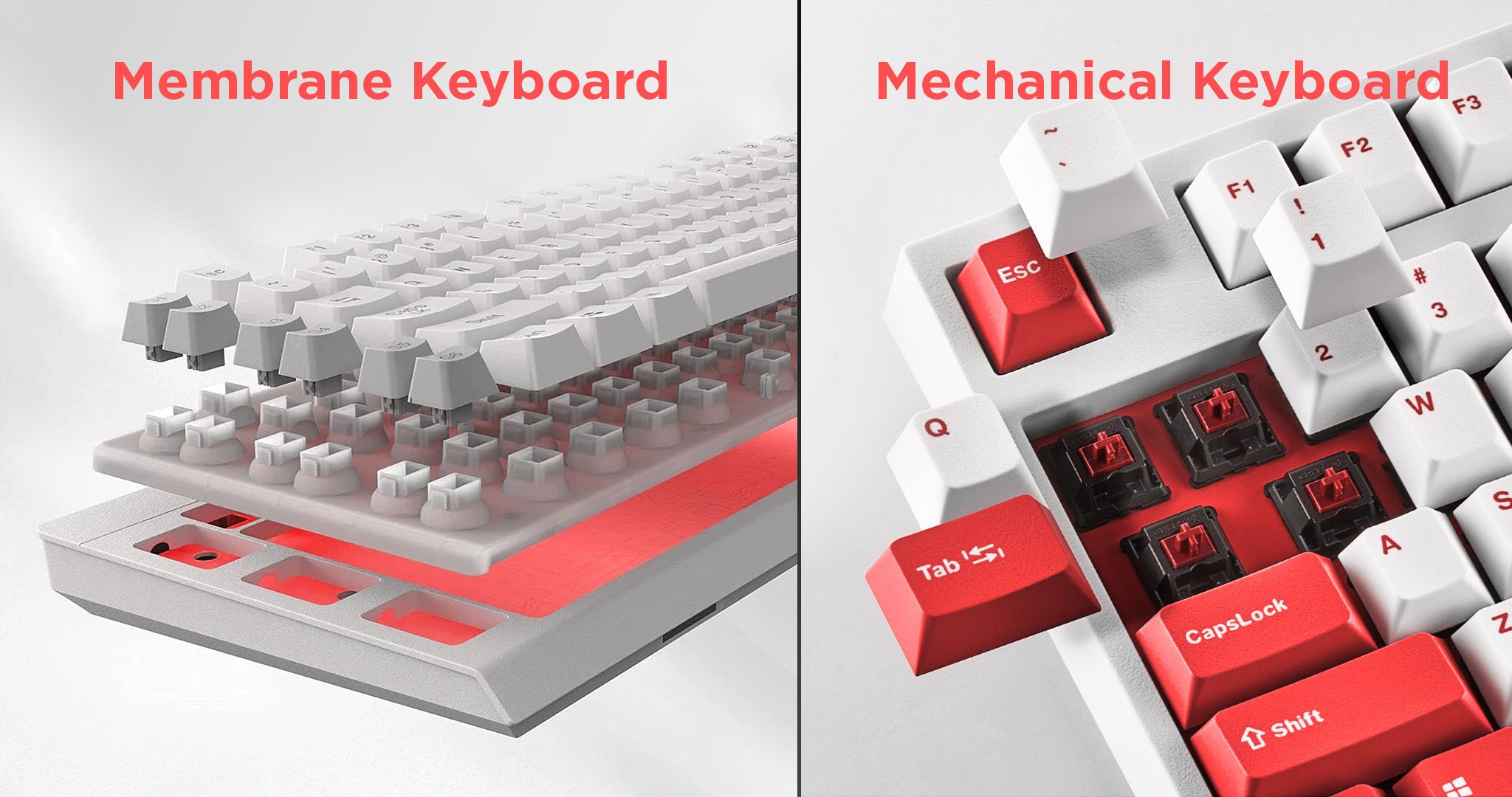
They don’t, however, target the same audience. They provide a different kind of user experience.
They’re priced in wholly disparate ways. And, well, only one of them is thriving in today’s day and age: mechanical keyboards have risen to a level of popularity and ubiquitousness we could hardly have imagined just a few years ago.
The twenty-first century is all about slimming things down.
It’s about efficiency and technological advances and shaving excess “fat” wherever it can be found. It’s about minimalism and an aesthetic that is devoid of any nuance and character. That’s true for architecture as much as it is for laptops, mice, chairs, benches, mobile phones, et cetera.
And in that relentless pursuit, our keyboards lost not only their thock but also their depth and personality.
They retrogressed, all as a result of them having to cater to as broad an audience as possible.
Shallow membrane keyboards might look nice — a highly subjective criterion, to be sure — but they cannot compete on any other front.
Why Are Mechanical Keyboards So Popular?
They’re better in every way, shape, and form. They’re more aesthetically pleasing, too, according to most users.
They can be tweaked and tuned and adjusted to one’s liking. They’re layered peripherals and tools that can aid us greatly in our daily lives.
A custom mechanical keyboard allows you to change its keycaps, stabilizers, to lube these elements in different ways, perform many different mods (all of which affect the sound and feel), to swap out the switches themselves, and customize them in a myriad of different ways.
A custom mechanical keyboard is a playground with seemingly endless possibilities. The sky’s the limit. Or, well, your own imagination and budget.
Pre-built, “stock” mechanical keyboards aren’t as exciting or malleable, but they still carry much of the same DNA and are a great gateway into a world that many folks around the globe adore and cherish.
A good mechanical keyboard is like a revelation. A near-sensory experience. Typing on it evokes a visceral feeling.
It is comprised of so many different elements and once they click in the right way there’s really nothing like it — a state of absolute bliss from the very first keystroke.
The world of mechanical keyboards is like a rabbit hole without an end, a hobby that’ll challenge and reward you in entirely different ways.
And, perhaps best of all, there’s always something new on the horizon — a new mod or type of switch or keycap set or a different form factor to pique one’s interest.
Membrane keyboards, on the other hand, don’t have that kind of depth. They never did and, odds are, never will.
Still, they’re not as bad as some people make them out to be. They are inferior and a lot more limiting compared to their more sizable brethren, but should by no means be overlooked.
Are Membrane Keyboards Still Worth Buying?
Membrane keyboards offer no real customizability and, for some, that’s perfectly fine.
You just buy a model that catches your eye (or adheres to a certain aesthetic you’re partial to), lay it on your desk, and get to work.
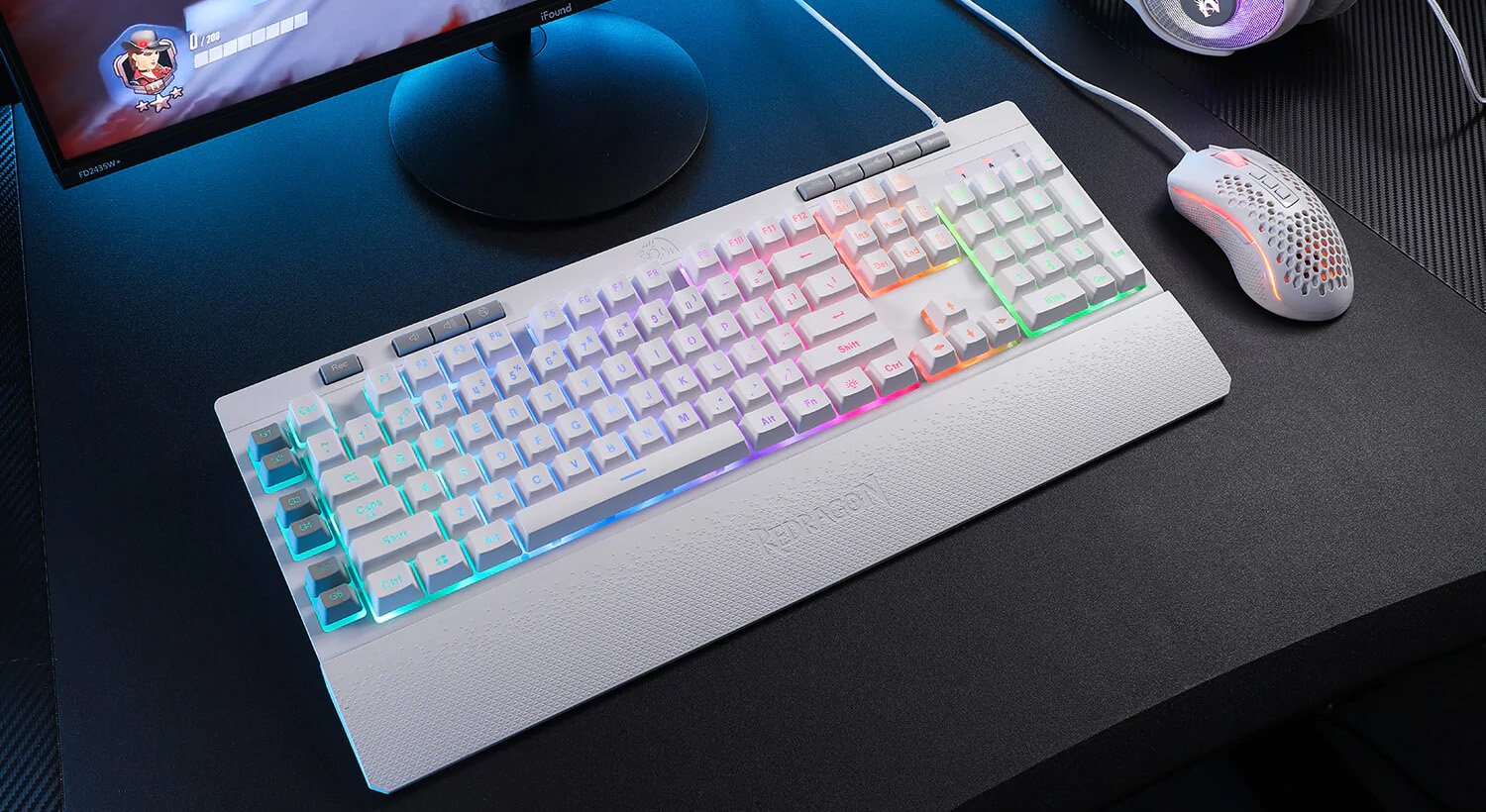
Source: Redragon
There’s no philosophy to it, no bells and whistles you’re never going to use, it’s sleek, simple, elegant by design, and, perhaps most importantly, more silent than any mechanical keyboard money can buy (somewhat debatable but you do get the point).
That is no small benefit, especially in environments in which audible noises aren’t tolerated.
They, too, can come with many programmable keys and macros, RGB lighting, multi-device connectivity, Bluetooth support, and so on.
They’re smaller, more compact, and easy to carry around and travel with.
Some folks use their computers for fifteen hours a day. Others just sit down, type out a few emails, check the weather, and go elsewhere to explore the world and partake in whatever activities they have planned.
Membrane keyboards are geared towards entirely different users and should not be compared to mechanical ones — they cater to different demographics.
Mechanical keyboards are nowadays seen as an indispensable tool for creatives, productivity workers, and — perhaps most of all — gamers.
One could argue (with limited success) that their many benefits and splendors can best be harnessed by a certain kind of user.
They’re a great addition to one’s set-up regardless of one’s profession, but to someone who’s not “into” that whole thing, a mechanical keyboard might seem too archaic, too clunky and loud.
And, well, that point of view sure does have a bit of weight to it, regardless if you agree with the overall sentiment or not.
Membrane keyboards, on the other hand, are a “safe” pick. They’re not offensive in any way, shape, or form.
They won’t make your coworkers turn on you if you start typing at blazingly fast speeds. They’re not as expensive and they don’t have a cult following surrounding them.
They’re not pretentious nor do they come with an instruction manual.
And, as such, they definitely have a purpose and a reason for being in today’s world.
Are Mechanical Keyboards Worth It?
They absolutely are! Still, you’d be wise to set certain boundaries.
It’s easy to get carried away with all the hype; what was once a niche, obscure hobby for a handful of people has now grown into an astonishingly elaborate and widespread scene.
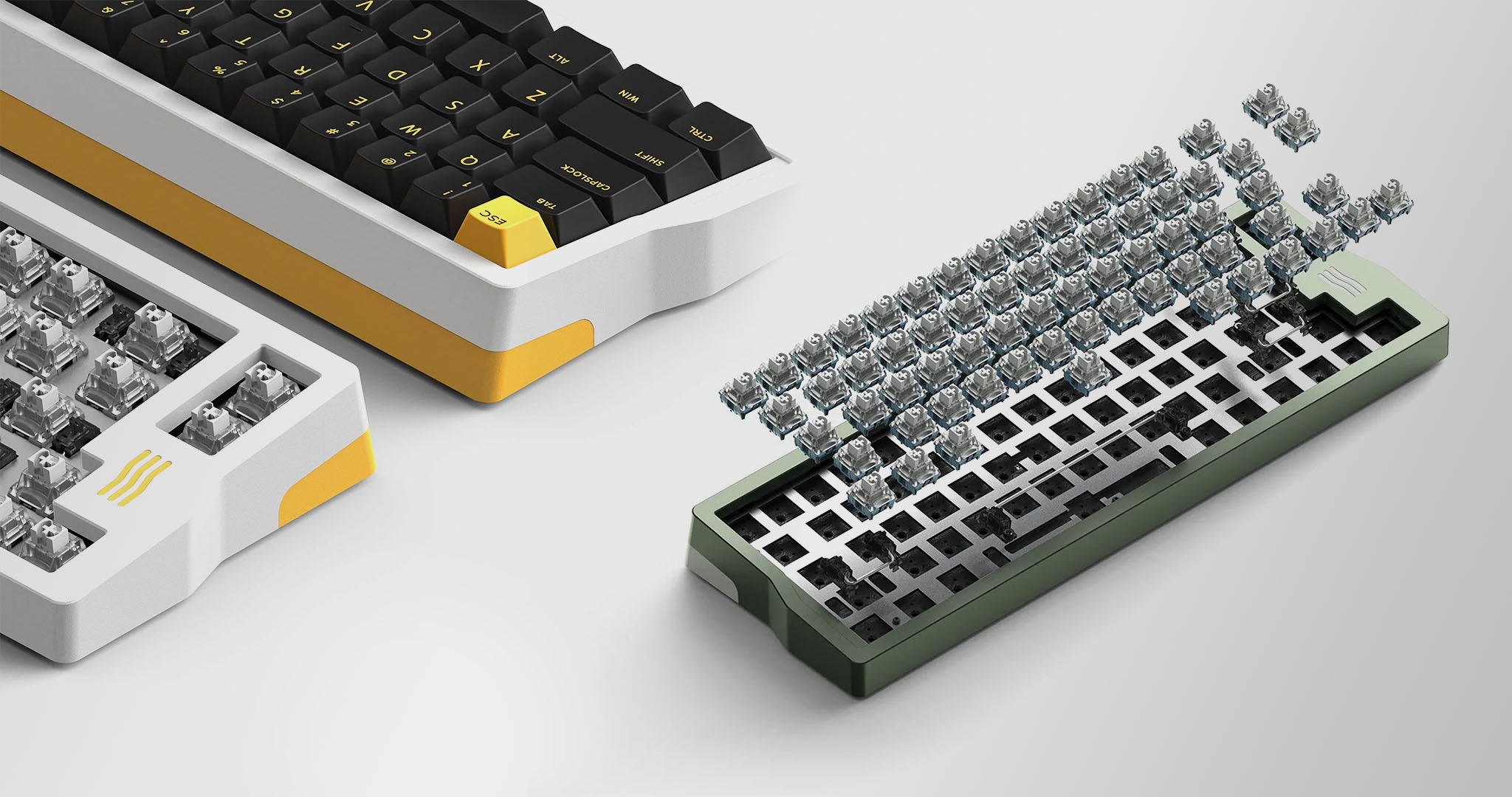
Source: Iqunix
It’s also far more expensive than you’d expect.
There’s a sizable number of people out there who spend hundreds upon hundreds of dollars on their custom mechanical keyboards.
There’s a thriving scene on YouTube, too, one that is accompanied with many online forums and in-depth guides and what have you.
It’s easy to feel like you’re missing out. Don’t buy into the hype.
A mechanical keyboard is a tool, much like any other peripheral. It has its benefits (many of them, in fact). It’s not, however, going to make you any more productive than you already are, nor will it magically improve your performance in VALORANT.
Don’t subscribe to this train of thought — one that could seriously damage your wallet and have you chase expensive peripherals that are by no means as jaw-dropping as some folks make them out to be.
The one really big positive about this whole thing is the fact that it paved the way for a truly competitive market. Nowadays you can get an absolutely amazing mechanical keyboard for less than $100.
There’s always something better and more well-rounded — that’s just the way this whole market works — but users can nonetheless get 90% (if not more) of the whole experience for a truly sensible sum of money.
Membrane Keyboard Recommendations
No one seems to be talking about membrane keyboards these days and while we do understand why it’s still worth pointing out that they, too, are worth purchasing.
Mechanical ones are vastly superior, but there are still certain scenarios where one might prefer a more membrane-like typing experience.
These scenarios might not be great in number, but they do exist.
Here are some of the most popular membrane keyboards on the market at the time of this writing:
Logitech MX Keys
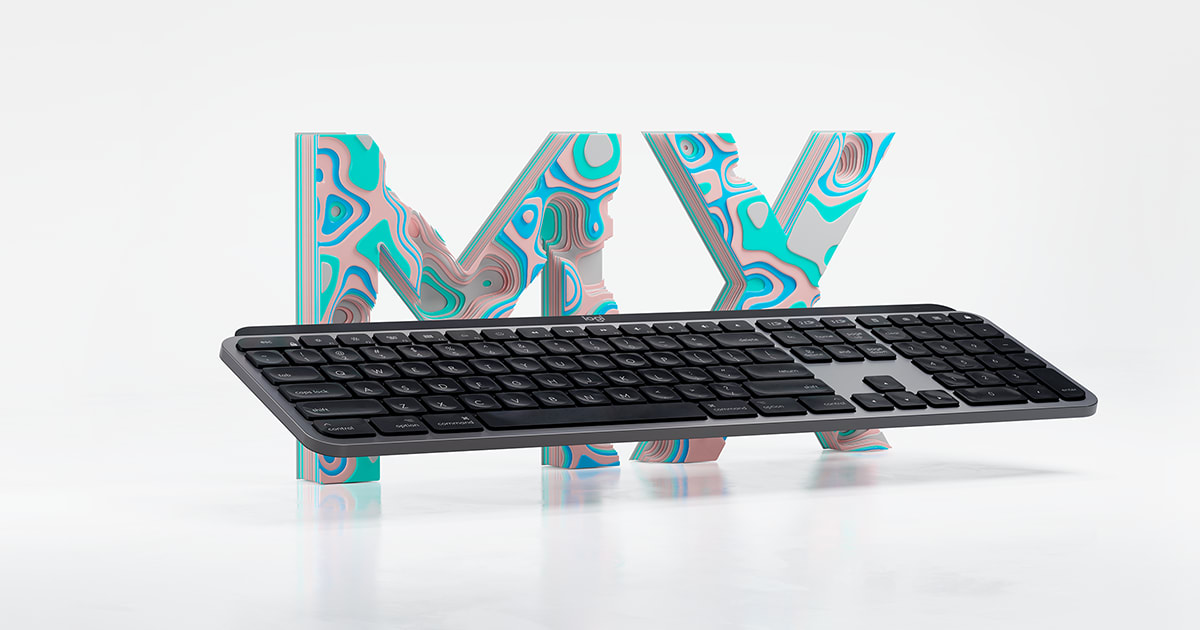
Source: Logitech
A stand-out option, no doubt, and also one that echoes so much of that well-known Apple aesthetic. That, depending on your preference, is either a huge plus or is tremendously off-putting.
Regardless, the MX Keys stands out for a very good reason: it is a truly well-rounded product, has great build quality, smart illumination, can connect to up to three devices, and has a built-in battery that’ll last you up to a whopping five months with backlighting turned off.
There’s even a Mini variant as well!
Microsoft Surface Keyboards
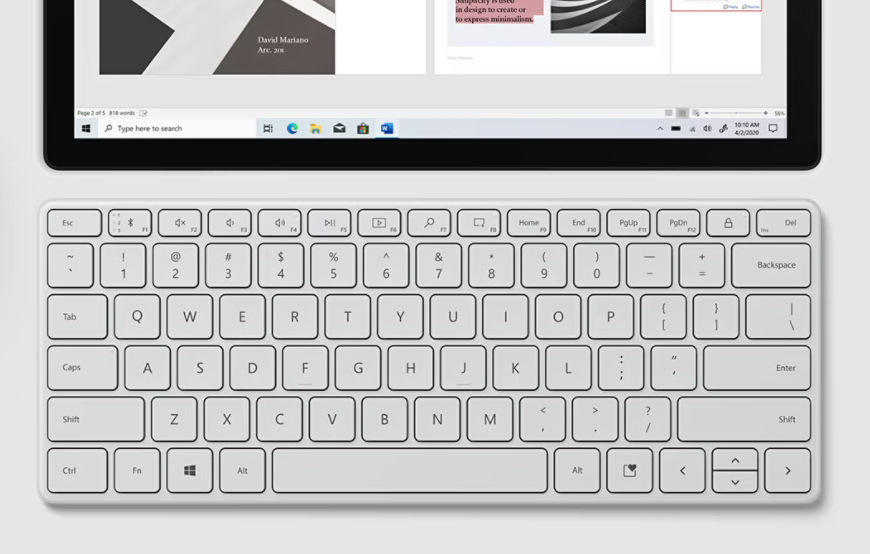
Source: Microsoft
Microsoft has numerous membrane keyboards to offer, and they’re all quite interesting, too.
First of all, their design is the most striking. Clean, minimalist, and devoid of any unnecessary flair.
They’re “meticulously crafted,” as Microsoft puts it. Sleek and simple, they offer a silent typing experience that is very similar to that of a Surface keyboard.
They also come in a few distinct sizes, too! All in all, they’re a great option if you’re after a no-frills kind of membrane keyboard, one that is easy on one’s eyes and on one’s wallet.
Razer Ornata
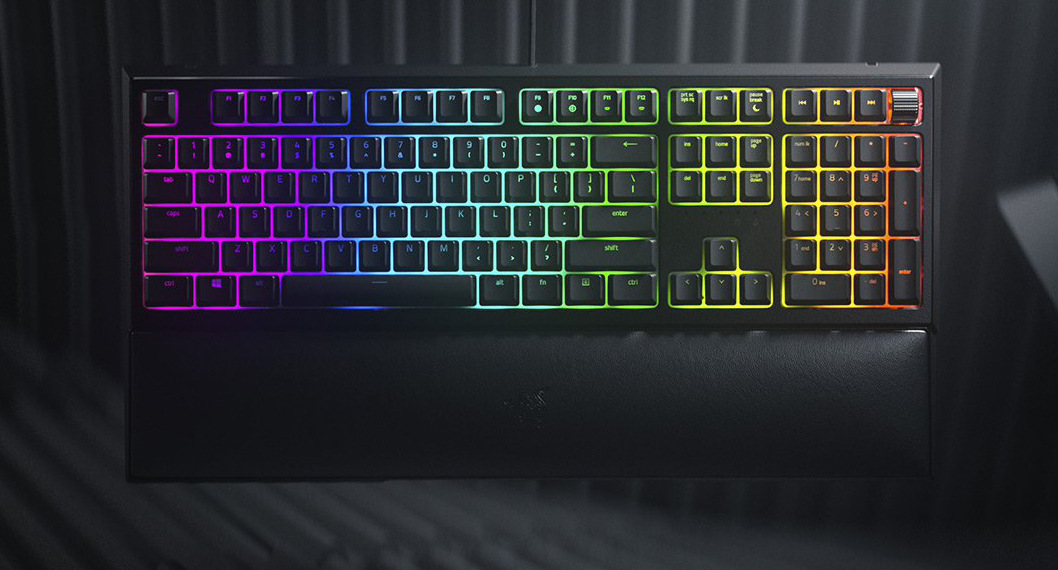
Source: Razer
The Ornata V2 from Razer is quite a fascinating option. It features a full-size layout, has just the right amount of RGB, and, perhaps most importantly, a hybrid “mecha-membrane” switch that, according to Razer, combines the best of both worlds.
It is something of an in-between, a weird mix that’s actually quite nice. It’s not enjoyable as a true mechanical switch but it does avoid most pitfalls that are so intrinsically tied to membrane-based keyboards.
It even comes with an included wrist rest. Other gaming-oriented alternatives include the SteelSeries Apex 3 TKL, the Corsair K55 (probably even better than Razer’s Ornata), and the Logitech G213 Prodigy.
Mechanical vs. Membrane — Which One Is Right For You?
Let’s distill it all down to just a few straightforward bullet points — a TL;DR, if you will:
Buy a Mechanical Keyboard If:
- You want a premium typing experience
- You want to tinker with your peripherals and fine-tune them to your liking (this mostly holds true for custom mechanical keyboards)
- You want to elevate your gaming set-up
- You want to enter a layered scene that’ll entertain you for the months and years to come
- You want a keyboard that’ll endure millions upon millions of actuations (and withstand any potential gaming-related abuse)
Buy a Membrane Keyboard If:
- You want a wholly silent typing experience
- Enjoy typing on your laptop for hours on end
- You want something cheap and easily replaceable
FAQ
Let’s go over a few potential questions you might have regarding this particular topic:
Are Mechanical Keyboards Better Than Membrane Ones?
They are, objectively speaking.
Custom ones can be fine-tuned and adjusted to one’s liking, with various different switches, stabilizers, keycaps, sound-dampening materials, and so on.
And even pre-built, “stock” ones are better — they offer a vastly superior typing experience and last much, much longer.
How Much Should I Spend on a Mechanical Keyboard?
That depends entirely on your budget.
Nowadays you can get an incredibly good (custom) mechanical keyboard for around $100 or even less.
You could, in theory, spend up to a thousand, but you’re not going to get all that much for your money’s worth. And, plus, it’s better to “start off small” and then build your way up over the years.
Can I Game on a Membrane Keyboard?
For sure! It’s not going to be as pleasurable of an experience compared to even the most basic mechanical keyboard, but it’ll still suffice.
Over to You
Are you a fervent member of the mechanical keyboard cult or have you not yet made the transition? Let us know in the comment section down below and, in case you need any help, head over to our forum and ask away!
![Mechanical vs Membrane Keyboards [A Clear Winner?] Mechanical vs Membrane Keyboards [A Clear Winner?]](https://www.cgdirector.com/wp-content/uploads/media/2022/10/Mechanical-vs-Membrane-Keyboards-Twitter-1200x675.jpg)
![Best Keyboards for Video Editing [2024 Update] Best Keyboards for Video Editing [2024 Update]](https://www.cgdirector.com/wp-content/uploads/media/2023/02/Best-Keyboards-for-Video-Editing-Twitter-594x335.jpg)
![Linear vs. Tactile vs. Clicky Mechanical Keyboard Switches [There’s One That Suits You Best] Linear vs. Tactile vs. Clicky Mechanical Keyboard Switches [There’s One That Suits You Best]](https://www.cgdirector.com/wp-content/uploads/media/2023/01/Linear-vs.-Tactile-vs.-Clicky-Switches-Which-One-Suits-You-Best-Twitter-594x335.jpg)
![Guide to Mechanical Keyboards [Everything you need to know] Guide to Mechanical Keyboards [Everything you need to know]](https://www.cgdirector.com/wp-content/uploads/media/2022/11/What-to-Look-For-in-a-Mechanical-Keyboard-Overview-Buying-Guide-Twitter-594x335.jpg)
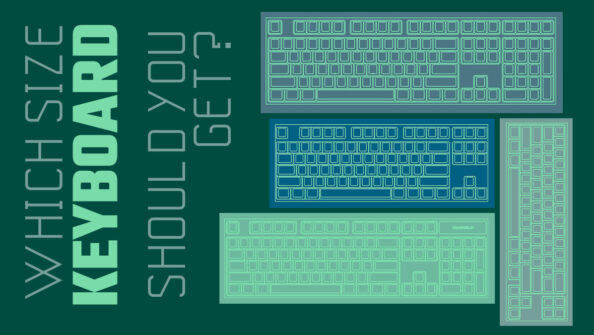

2 Comments
1 June, 2023
Adherents of the mechanical keyboard have become ensorcelled by the idea of customizability, without actually empirically testing if the tools they so cherish actually provide any significant gains in productivity, gaming or otherwise. It would be charming if they weren’t also so insistent in lambasting other people for recommending other types of keyboards, as if it were the nadir of the phenomenological quidity of using a keyboard. More often than not they can never quite comprehend that for lots of people, a keyboard is merely a keyboard, and that there are a myriad other ways of showing off your personality.
Of course the most remarkable thing about the entire mechanical keyboard scene is that their acolytes become offended at the idea that they have bought in to the gimmick of companies who have essentially sold the concept of product assembly as being part of the user-experience — having failed to grasp once again that this is merely an observation, and not an indictment of their character. I suspect that this trend, already spread to the building of custom PCs, will either reach its zenith and plateau, or be adapted by other product manufacturers in the tech industry.
1 June, 2023
Hello Josephus,
First of all, thank you for taking the time to type out such an eloquent comment. Quite refreshing. You are, in general, correct. Still, these trends are by no means a rarity in today’s world. People get judged for all sorts of things, especially their choices in fashion, their taste in music, and their tech-related “proclivities.” Mechanical keyboards are simply yet another lens through which “acolytes” judge those who do not agree with their (often-times illogical) passion. It’s a consumer-focused world, after all.
As always, being informed about what’s good and why is the best course of action. That’s why we try to cover both “sides of the coin.” I’ve personally built many different mechanical keyboards, but I still enjoy typing on membrane ones the most (laptops, primarily), so I definitely get where you’re coming from.